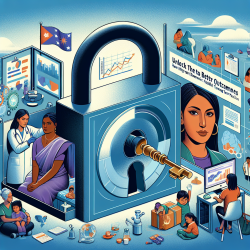The COVID-19 pandemic significantly accelerated the adoption of telemedicine, including in the realm of voice therapy. A recent study titled Provider and Patient Satisfaction with Telemedicine Voice Therapy During the COVID-19 Pandemic offers valuable insights into the effectiveness and satisfaction associated with telemedicine voice therapy. This blog aims to help practitioners improve their skills by implementing the research outcomes or encouraging further research in this field.
Key Findings
The study, conducted at the USC Voice Center, involved 226 adults who underwent voice therapy via telepractice between April and October 2020. Both patient and provider satisfaction were measured using a visual analog scale (VAS) and a Telemedicine Satisfaction Questionnaire (TSQ). Here are the key findings:
- Patient satisfaction scores averaged 86.8 on the VAS, while provider satisfaction scores averaged 80.6.
- 73% of patients preferred telemedicine voice therapy over in-person appointments.
- Reliable internet connection was significantly correlated with higher patient satisfaction (P=0.04).
- Providers reported lower satisfaction for sessions with Asian patients and for patients whose diagnoses changed after therapy initiation.
Practical Implications
These findings suggest several actionable steps for practitioners:
- Emphasize Reliable Internet: Ensure patients have access to a stable internet connection. Consider providing resources or guides to help patients troubleshoot common technical issues.
- Cultural Sensitivity: Be aware of potential cultural and language barriers. Offer culturally sensitive care and consider additional training to improve communication with diverse patient populations.
- Accurate Diagnoses: Follow best practice guidelines by obtaining laryngeal imaging before initiating voice therapy to enhance provider confidence and satisfaction.
- Manual Therapy Techniques: For patients with hyperfunctional disorders, develop and provide clear guides for self-administered manual therapy techniques to improve satisfaction.
Encouraging Further Research
The study highlights the need for more comprehensive research to explore:
- The long-term satisfaction and outcomes of telemedicine voice therapy beyond the pandemic.
- The development of validated questionnaires for assessing provider satisfaction with telemedicine.
- Strategies to mitigate the lower satisfaction rates among providers treating diverse patient populations.
To read the original research paper, please follow this link: Provider and Patient Satisfaction with Telemedicine Voice Therapy During the COVID-19 Pandemic.










